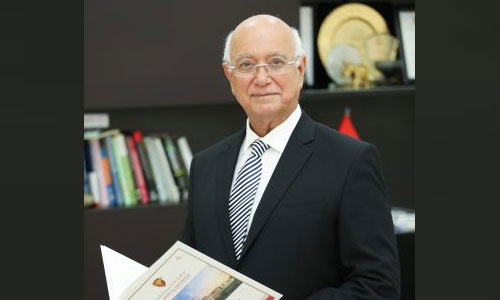News
Health professional training and education in the context of COVID-19 pandemic
- March 18, 2021
- Posted by: Web Team
- Category: GMU


The COVID-19 pandemic has led to extraordinary circumstances in most countries of the world. Like many other sectors, education sector has been among the very first ones to suffer from the impact of COVID-19 with the closure of educational institutions at all levels, including health professions education institutions. This has led to disruption of teaching and learning activities, interruption in the completion of their curricula and cancellation of exams. In many countries health professions institutions have started making efforts to resume education as much as possible through various means. Rapid transition from traditional methods of teaching and learning to online teaching methods has raised challenges and concerns about the completion of curricula, clinal and practical training, assessment as well as quality assurance of the education. While some of these challenges can be overcome relatively quickly, others are producing lasting and sustained changes in the modality and methodology of health professions education and assessment.
At the same time, many countries are facing shortages of health professionals with core public health and appropriate clinical skills for rapid COVID-19 response. Several key competencies are being identified to allow a multidisciplinary health workforce to deliver effective disease control and health care services in all settings, for example, contact tracing, infection prevention and control, risk communications, acute care management, palliative care, and telemedicine, etc.
Drawing from the lessons of the pandemic, there is an urgent need to:
- review the existing national health workforce education and capacity building strategies
- identify gaps in current health education core competency package
- discuss how to improve health workforce education and training systems to fit for effective public health emergency response in the future.
Objectives
- To identify the challenges and good practice of various innovative modalities and approaches implemented to ensure continuity of health professional education during the COVID-19 pandemic;
- To explore identified gaps in the existing public health and clinical competency training across various health professions drawing upon lessons from the COVID-19 response and explore what this may mean for future education and training strategies;
Potential moderator /speakers/ commentary
- Introductory remarks
- WPRO – Martin Taylor
- Moderator
- Prof Des Gorman from University of Auckland, New Zealand
- Speakers
- Speaker 1: Country experience from a high COVID-19 burden country in EMR
- Professor Hossam Hamdy, Chancellor, Gulf Medical University, Ajman, UAE.
- Speaker 2: Country experience from a high COVID-19 burden country in SEAR
- Dr. Ali Ghufron Mukti, Director General for the Indonesian Ministry of Research, Technology and Higher Education (MORTHE), and acting president of Trisakti University in Jakarta.
- Speaker 3: Country experience from a high COVID-19 burden country in EMR
- Dr. Latiffah Hassan, Professor in Veterinary Public Health and Epidemiology and Coordinator of the Malaysia One Health University Network (MyOHUN).
- Speaker 1: Country experience from a high COVID-19 burden country in EMR
- Commentary
- Health Education England
- Closing remarks
- WPRO – Martin Taylor
Audiences
Policy makers, national IMST members, Officials from Ministries of Health, Higher Education and subnational health departments, researchers, health professional education institutions.
Key questions to guide the presentations
- How did health professional education institutions respond to the disruption of the health professional education during COVID-19 pandemic; what were the challenges faced (infrastructure, regulatory, quality and assessment, etc) and what were the promising solutions to address them?
- Drawing from lessons from COVID-19, how do you find the existing health professional education adequate for effective health emergency response? What core competency training should be strengthened in terms of public health functions and clinical functions? How should countries adjust the health professional education plan (e.g., recruitment and training for preservice and in-service health workers, by different health professions) for future preparedness?
Key questions to guide the discussion
- What are models and approaches have been prove effective in maintaining continuity and quality health professional education to health workers during pandemic time? What policies and actions should be in place to enable successful delivery of such programs? How do we encourage peer learning among health workers to quickly translate field experiences into guideline development?
- What is the essential skill mix for the future health workforce? How should modern health professional education systems adapt to service delivery transformation led by technology advancement such as telemedicine, and AI in healthcare, etc??

